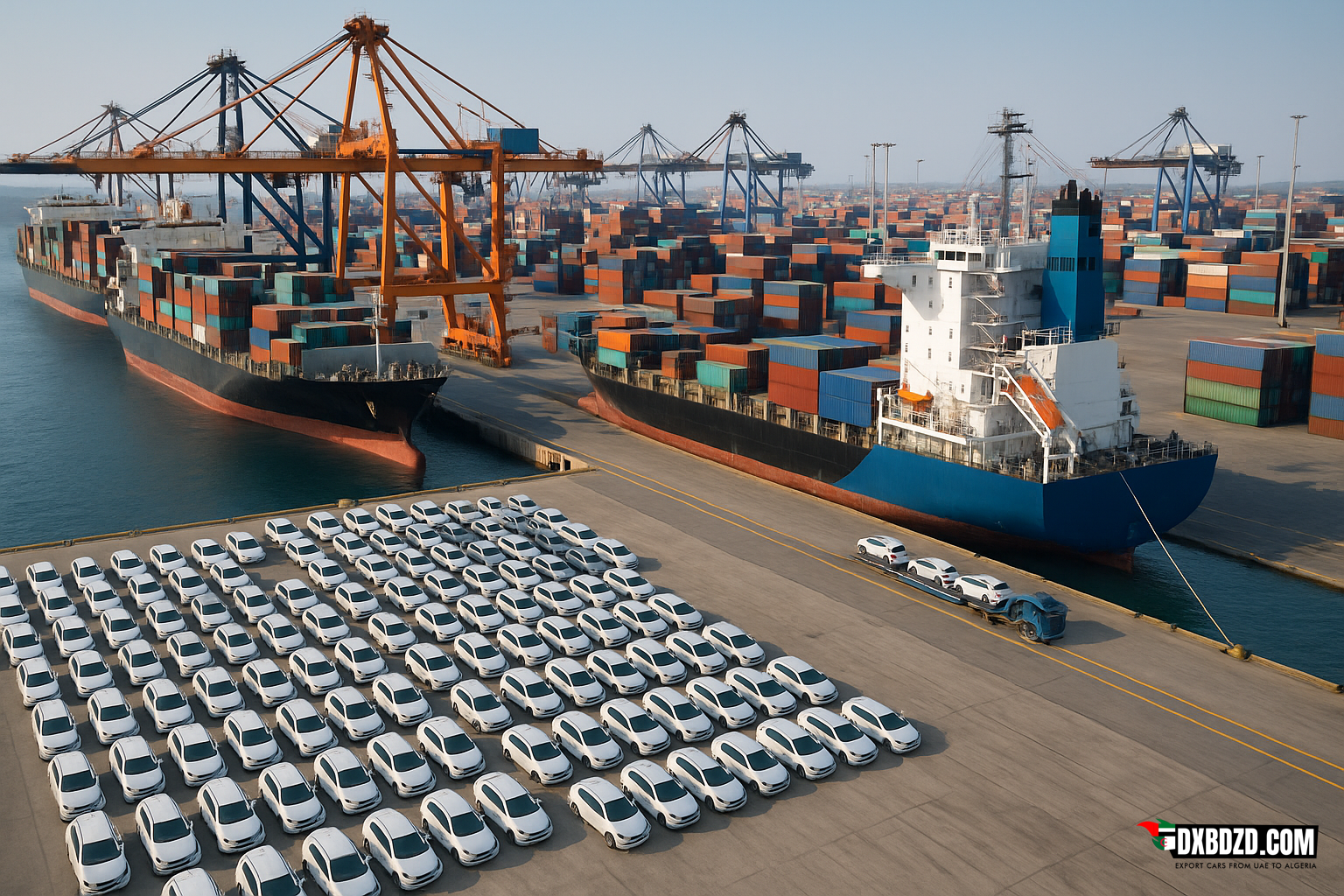
Understanding the Car Import Regulations in North Africa
META: Discover vital insights into the car import regulations in North Africa, including costs, timelines, and necessary documents.
Understanding the Car Import Regulations in North Africa
North Africa, with its evolving economies, has become an attractive destination for car imports from the UAE. However, navigating the complex regulatory landscape can be daunting for first-time exporters. This article provides a comprehensive guide to understanding the car import regulations in North Africa, specifically focusing on Algeria.
TL;DR
- North Africa presents a favorable market for car exports from the UAE.
- Regulatory procedures, though complex, can be navigated with proper planning and information.
- Costs, timelines, and necessary documents differ per country, with Algeria as our focus.
- Opting for RoRo or Container shipping has its pros and cons.
- Common mistakes can be avoided by staying informed and vigilant.
Costs
The costs associated with exporting cars to North Africa can be broadly classified into:
- Export fees and duties in the UAE
- Shipping costs, which can vary depending on the method of shipping (RoRo or Container)
- Import fees and taxes in the destination country
Please note that these costs can fluctuate based on various factors such as car details, economic conditions, and changing regulations.
Timeline
Typically, the entire process of exporting a car from the UAE to Algeria can take anywhere between 4-6 weeks. This timeline includes:
- Preparation of necessary documents: 1 week
- Shipping time: 2-4 weeks
- Customs clearance and delivery in Algeria: 1 week
Documents Checklist
When exporting cars from the UAE to Algeria, ensure you have the following documents:
- Original Passport or Emirates ID
- Original Vehicle Registration Card
- Export Certificate from RTA
- Purchase Invoice of the Vehicle
- Certificate of Origin
- Bill of Lading
Step-by-Step Guide
- Prepare all necessary documents.
- Book your shipping method – RoRo or Container.
- The car will be inspected and loaded for shipping.
- The car arrives at the destination port in Algeria.
- Clear customs by submitting all the necessary documents and paying import fees and taxes.
Pros and Cons: RoRo vs Container
- RoRo (Roll-on/Roll-off)
- Pros: More economical, faster loading/unloading times.
-
Cons: Less protection, availability issues in some ports.
-
Container
- Pros: More protection, available in all ports.
- Cons: More expensive, longer loading/unloading times.
Common Mistakes
- Not preparing all necessary documents in advance can lead to delays.
- Not factoring in all costs can lead to budget overruns.
- Not checking the car’s condition before shipping can lead to disputes.
- Choosing the wrong shipping method can lead to unnecessary costs or damages.
FAQ
- Can I import any car to Algeria?
- Algeria has strict regulations on car imports. Only new cars are allowed for import.
- What are the duties and taxes for car imports in Algeria?
- The duties and taxes can vary based on the car's value, type, and engine size.
- Can I ship personal belongings with the car?
- In container shipping, personal belongings can be shipped. However, in RoRo shipping, it's not allowed.
- Is it necessary to insure the car during shipping?
- While not mandatory, it's highly recommended to insure your car during transit.
- What happens if I don't have all the necessary documents?
- Missing documents can lead to delays, fines, or even confiscation of the vehicle by customs.
In conclusion, while the process may seem challenging, with the right information and preparation, exporting cars to North Africa from the UAE can be a rewarding venture.
